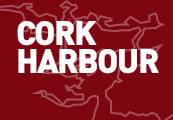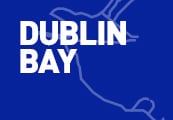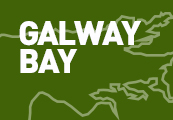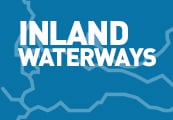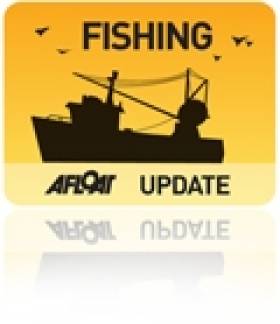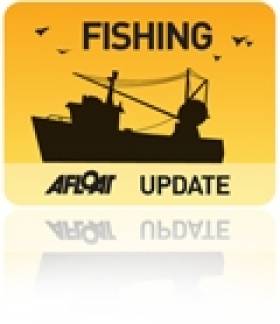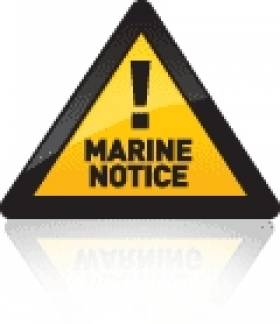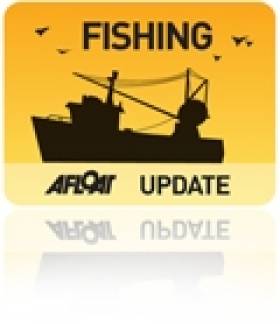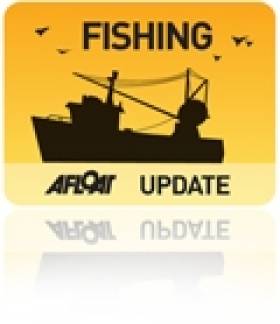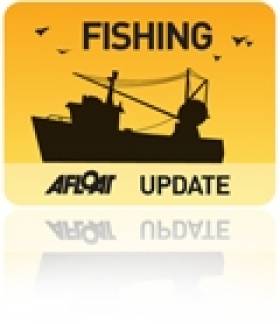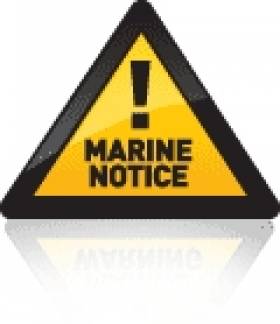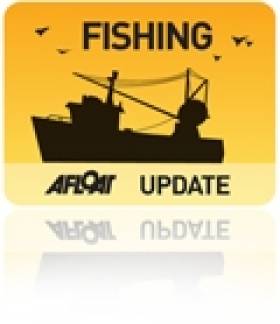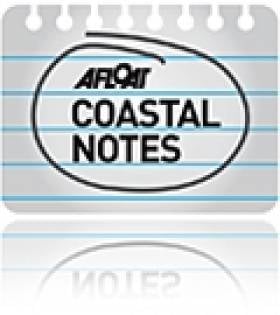Displaying items by tag: Fishing
Marine Launches Consultation On Food Research Agenda
#Fishing - The Department of Agriculture, Food and the Marine (DAFM) has opened an online consultation process to capture stakeholder inputs to the development of strategic research and innovation agenda (SRIA) for food-related research.
The consultation process concerns two food-related research priorities – Food for Health, and Sustainable Food Production and Processing – that were each identified in the Report of the Research Prioritisation Steering Group.
While the DAFM is particularly interested in receiving submissions from users of research outputs, the process is open to all interested parties - and has particular relevance for the fishing and aquaculture industries in the wake of revisions to the Common Fisheries Policy.
Further details of the consultation process, including instructions on how to make submissions are available on the DAFM website HERE.
The consultation process remains open until 6 March 2014.
Brussels Reaches Agreement On European Fisheries Fund
#Fishing - Draft rules for allocating European Maritime and Fisheries Fund (EMFF) aid to help fishermen comply with the new Common Fisheries Policy (CFP) requirements were informally agreed late last month, after several three-way meetings between European Parliament, Council and Commission.
The rules should now be approved at the first reading, before the end of the current parliament.
"This was the final chapter of the negotiations," said rapporteur Alain Cadec. "With the political agreement reached tonight we will have an ambitious European Maritime and Fisheries Fund for 2014-2020. This is a real victory for the European Parliament, which was heeded by the Council and the Commission.
"The tug of war between the institutions in December allowed Parliament to return to the negotiating table with a strong position and reach a very satisfactory agreement regarding in particular the financial breakdown and engine renewal."
Parliament’s negotiators improved the Commission proposal, especially on collecting and managing fisheries data, which are needed for example, to set the Maximum Sustainable Yield required by the new CFP rules (MSY, meaning the largest catch that can be safely taken year after year and which maintains the fish population size at maximum productivity).
MEPs ensured that €520 million - a considerable increase over the original Commission proposal - of the EMFF budget will be earmarked for data collection.
Another negotiating success for Parliament was to require each member state with a significant small-scale coastal fishing fleet to table an action plan setting out a strategy for the development, competitiveness and sustainability of these fisheries, which play a key role in ensuring the vitality of coastal areas.
MEPs also amended the EMFF proposal to allow fishermen under 40 years old to be granted up to €75,000 in individual start-up support if they buy a small-scale and coastal fishing vessel between 5 and 30 years old and have five years' professional experience in the sector.
In addition, Parliament added EMFF support for withdrawing, replacing or modernising engines for vessels up to 24 metres long, including an requirement for those of 12-24 metres that the new engine's power output be less than that of the engine it replaces. However, an amendment to reintroduce fleet renewal subsidies was rejected.
To give effect to Parliament's agreement with the Council on the forthcoming CFP, which obliges member states to set sustainable fishing quotas from 2015 and introduces a ban on discarding unwanted fish, the EMFF will help fishermen to comply with the new rules by supporting investments in more selective fishing gear or equipment to facilitate handling, landing and storage of unwanted catches.
EMFF aid will also be used to improve safety and working conditions, data collection and port infrastructure.
After a plenary vote in October to open negotiations with the Council, the agreement will now be put to a vote in the Fisheries Committee before seeking final approval by the full House in April.
Marine Notice: Revisions To Performance Standards For Emergency Beacons On Small Fishing Vessels
#MarineNotice - The latest Marine Notice from the Department of Transport, Tourism and Sport (DTTAS) advises on revisions to the performance standards for emergency beacons on small fishing vessels.
The revision includes the carriage requirements of manual/automatic activation float-free Emergency Position Indicating Radio Beacons (EPIRBs) for all fishing vessels of under 15 metres and Personal Locator Beacons (PLBs) for all crewmembers.
It follows the recent Marine Notice No 14 of 2014, which advised of a revised Code of Practice concerning the design, construction, equipment and operation of small fishing vessels less than 15 metres in length overall.
Full details of the revised standards are included in Marine Notice No 18 of 2014, a PDF of which is available to read or download HERE.
State Aid Rules Block Compensation For Lost Galway Fishing Boats
#Fishing - Galway fishermen will receive no State compensation for fishing vessels damaged or lost in the recent spate of storms, according to Galway Bay FM.
As Afloat.ie reported last month, Marine Minister Simon Coveney said he would do whatever was in his power to help fishermen whose livelihoods have been affected by the extraordinary severe weather since the start of the year.
But it emerged this week that no compensation would be coming their way due to State aid rules - though funding will be considered to help replace lost fishing equipment such as lobster pots via Bord Iascaigh Mhara.
Enhanced Safety Training for Skippers and Crews of Fishing Vessels
#fishing – Marine Notice No. 16 of 2014
Notice to all Fishing Vessel Owners, Skippers, Fishermen and Seafarers
Enhanced Safety Training for Skippers and Crews of Fishing Vessels Less than 15m Length overall
This Marine Notice is published in accordance with Section 8.6 of the Code of Practice for the Design, Construction, Equipment and Operation of Small Fishing Vessels of less than 15m Length overall (Rev.2), regarding the updating of safety skills and knowledge.
The following training course providers are approved to provide the required training under the Code of Practice:
Course Provider Details:
BIM Marine Services Division,
P.O. Box No 12,
Crofton Road,
Dun Laoghaire,
Co. Dublin.
Email: [email protected]
Tel: +353 (0) 1 214 4100
B.I.M. National Fisheries College,
Greencastle,
Co. Donegal.
Email: [email protected]
Tel: +353 (07493) 81099/ 81068
B.I.M. Regional Fisheries Centre,
Castletownbere,
Co. Cork.
Email: [email protected]
Tel: + 353 (0) 27 70450 /71106
Irish Maritime Administration,
Department of Transport, Tourism and Sport,
Leeson Lane, Dublin 2, Ireland.
For any technical assistance in relation to this Marine Notice, please contact:
The Marine Survey Office, Leeson Lane, Dublin 2, tel: +353-(0)1-678 3400.
For general enquiries, please contact the Maritime Safety Policy Division, tel: +353-(0)1-678 3418.
Written enquiries concerning Marine Notices should be addressed to:
Maritime Safety Policy Division, Dept. of Transport, Tourism and Sport, Leeson Lane, Dublin 2, Ireland.
email: [email protected] or visit us at: www.dttas.ie
27/01/2014
New System of Points for Serious Fisheries Offences
#fishing – Ireland now has in place a system to apply points to the license of fishing vessels involved in serious fishery offences. Irish legislation, bringing into effect Ireland's points system for serious infringements of the Common Fisheries Policy (CFP), as required by EU regulation, was signed into law by Simon Coveney, TD, Minister for Agriculture, Food & the Marine on the 8th January 2014. The point's scheme is separate from other potential sanctions for serious infringements including, for example, a court prosecution.
Infringements which might be regarded as warranting points when they are sufficiently serious, would include:
failing to fulfil obligations to record and report catch or catch related data (including data to be transmitted by satellite vessel monitoring system);
use of prohibited or non-compliant gear;
falsification or concealing of markings, identity or registration of the vessel;
concealing, tampering or disposal of evidence relating to an investigation;
taking onboard, transhipping or landing of undersized fish;
carrying out of fishing activities in a prohibited conservation area;
fishing without a valid licence, authorisation or permit issued by the flag State or the relevant coastal State;
fishing in a closed area or during a closed season, without or after attainment of a quota or beyond a closed depth;
fishing for a stock which is subject to a moratorium or for which fishing is prohibited and,
obstruction of the work of officials in the exercise of their duties in inspecting for compliance with the applicable conservation and management measures.
The number of points to be attributed for specific infringements is set down in EU regulation. Every time a serious infringement is committed, the appropriate number of points will be assigned to the license holder of the vessel. Any license holder who accumulates more than 18 points will have the fishing license suspended for at least two months. For higher numbers of points the penalty increases to suspensions of four, eight and twelve months respectively. If, after the end of the fourth suspension period, further serious infringements occur, the fishing license will be permanently withdrawn. However, if the offender does not commit any serious infringements within three years of the previous such infringement, all points on the fishing license will be deleted and he/ she will start again with a clean slate. The regulation also provides for fishers to engage in activities which would result in deletion of points. Points stay with the vessel capacity and its associated license and are therefore transferred to the new owner if the vessel is sold on.
Susan Steele, Chair of the SFPA said: 'The SFPA welcomes the point system for serious infringements. The SFPA can initiate the issuing of points to vessels committing serious infringements in waters under Irish Jurisdiction and this will go a long way to ensure that fishing rules are applied in the same way in all member countries as well as harmonising the way infringements are sanctioned. We believe in proportionate dissuasive sanctioning of infringements detected and the SFPA are committed to implementing this system in an effective, fair and proportionate manner. These rules will give Ireland and other EU Member States new powerful tools not only to protect our fishing resources from unscrupulous operators, but also to protect the livelihoods of honest fishermen who would otherwise be exposed to unfair competition.
'The point system for serious infringements will work in tandem with the legal prosecution process through the courts. The cumulative effect should provide a very real deterrent for those who seek to gain unfair advantage over their fellow fishers by engaging in repeated serious infringements.'
Small Fishing Vessel Revised Safety Code Published
#fishing – Minister for Transport, Tourism & Sport Leo Varadkar has welcomed the publication by the Irish Maritime Administration in his Department of a revised Code of Practice for the Design, Construction, Equipment and Operation of Small Fishing Vessels (less than 15 metres length).
The Code, which was last revised in 2005, has been updated to ensure that the experiences gained from its implementation as well as relevant recommendations by the Marine Casualty Investigation Board (MCIB) have been incorporated. The revised Code will come into operation from 3rd March 2014.
Small fishing vessels are already required to carry EPIRBs (Emergency Position-Indicating Radio Beacons). The revised Code requires them to carry automatic, float-free EPIRBs, and for everyone on board such fishing vessels to wear Personal Locator Beacons (PLBs).
These changes to the Code follow several reports from the MCIB recommending the use of float-free EPIRBS on fishing vessels and the wearing of PLBs by all on board. Float-free EPIRBS are now much smaller and cheaper than earlier models.
Every fishing vessel will be required to be in compliance with these new requirements when they are next surveyed. This is in line with the safety initiative for the Irish Fishing Industry launched in Union Hall in July 2013 by Minister Varadkar and his colleague, Minister for Agriculture, Food and the Marine Simon Coveney. At the same event both Ministers also announced a new, enhanced Safety Equipment Grant Aid Scheme by Bord Iascaigh Mhara.
"While safety equipment may prove valuable in accelerating response times when a vessel or crew member gets into difficulty, it is no substitute for the overriding 'safety-first' approach which has to be recognised and adopted by everyone in the fishing sector if we are to see a reduction in the number of incidents, injuries and loss of life in the sector. I also remind all skippers and fishermen of their responsibility to check on all of their safety equipment prior to each trip to ensure it is all on board and in working condition," Minister Varadkar said.
The revised Code also includes details on existing requirements for the regular carrying out of musters and drills to ensure skippers and crew are familiar with safety procedures should an incident occur.
"Our laws, regulations and codes of practice already reflect best international practice, and there is no compelling reason why, one day, there should be no fatalities in the Irish fishing sector. We need a change in attitude, culture and practice across the sector."
Marine Notice: Revision Of Code Of Practice For Small Fishing Vessels
#MarineNotice - Marine Notice 14 of 2014 advises that a revised Code of Practice concerning the Design, Construction, Equipment and Operation of Small Fishing Vessels of less than 15 metres length overall (Revision 2 dated 20/01/14 with operative date of 03/03/14) has been published.
The revision incorporates provisions relating to the carriage of automatic, float-free EPIRBs for fishing vessels of under 12 metres and for the wearing of Personal Locator Beacons by all on board a fishing vessel (Chapter 9.5). Training is also required on the use of this equipment (Chapter 8).
These requirements will be included in the scope of the initial survey, survey renewals and at intermediate declaration stage. There are other textual changes reflecting feedback from the industry, surveyors and findings of the Marine Casualty Investigation Board. These include:
- The title of the code has been updated to reflect the inclusion of operational matters;
- Stability criteria remain essentially the same but ‘roll tests’ now need to be carried out both in ‘departure’ and ‘arrive port’ conditions (Chapter 3.2);
- Existing requirements in relation to drills/musters (Chapter 8.9) and the regulation of work/rest time (Chapter 8.10) have been included in the Code;
- Text has been included to remind fishers of their existing obligations to comply with passage planning requirements (Chapter 10.14);
- The Declaration form (Annex 8) has been updated and clarified so as owners and panel surveyors are clear of their obligations under the Code;
- and References to bodies and Marine Notices, etc have been updated.
A copy of the revised Code of Practice is available on the Department’s website HERE. The most recent listing of the approved panel of surveyors and their contact details is also available via the previous link.
Minister Pushing For Assistance For Storm-Affected Galway Fishermen
#Fishing - Marine Minister Simon Coveney has said he will do what he can to help fishermen in Galway whose livelihoods have been affected by the damage wrought in the recent storms, as Galway Bay FM reports.
The move follows a call by a local senator for Government assistance to inshore fishermen facing expensive repairs to vessels and docksides, not to mention many small shellfish farms devastated by the extreme waves and high tides.
In other regional news, the Connacht Angling Council says it will oppose the introduction of compulsory angling charges should they be introduced with the new Inland Fisheries Bill.
According to the Galway Advertiser, opponents of the bill view any proposal for a registration charge as a 'rod licence' in disguise.
"The ownership and right to use these waters for angling are jewels that we have inherited from our forefathers," said council chair Martin Kinneavy, "jewels our forefathers fought to keep and are not for sale at any cost."
Afloat.ie recently published an FAQ on proposed measures for the new bill.
Erosion And Harmful Fishing Pose Double Threat To Ireland's Coastline
#Coasts - Increasing coastal erosion and weathering will soon force Ireland to make hard decisions about what parts of the coastline are too expensive to protect, according to a university professor.
As The Irish Times reports, Prof Robert Devoy of University College Cork says that with erosion rates threatening to jump far beyond the current average of up to 1 metre a year, Ireland's coastal counties would have to look "very clinically" at what parts are most worth concentrating their engineering efforts - expensive measures that simply cannot be afforded for all coastal areas.
The senior lecturer in the UCC Department of Geography says: "We need to assess which bits of the coast are most vulnerable to flooding and erosion and which bits of coast from a heritage viewpoint are important to retain and protect."
This sobering warning comes after Lorna Siggins' commentary on the state of Ireland's coastal marine environment, as six new marine protected areas are set to be enacted in law.
The six sites around the coast earmarked for designation as Special Areas of Conservation were proposed by Heritage Minister Jimmy Deenihan more than a year ago
But as Siggins states: "There’s turbulence ahead, if the State’s approach to fulfilling the habitats directive on land is anything to go by."
Aside from the "inconsistencies, poor communication and lack of stakeholder engagement" of the likes that have undermined bog conservation efforts, there's also the "survival of the fittest" attitude among the fishing fleet engendered by uneven implementation of the Common Fisheries Policy to contend with.
And according to Siggins, even the reformed CFP spearheaded by Marine Minister Simon Coveney will do "little to protect sensitive spawning grounds".
The Irish Times has much more on the story HERE.


